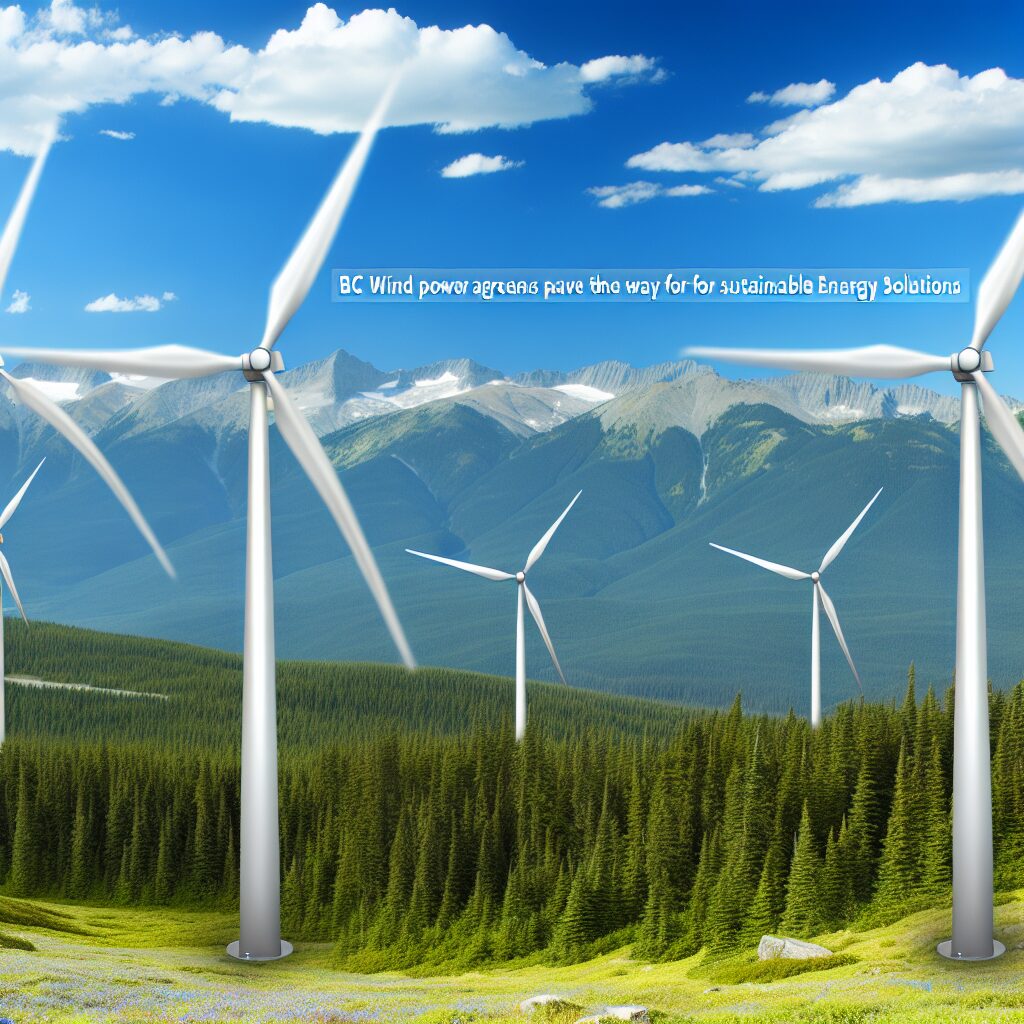B.C. Wind Power Agreements Pave the Way for Sustainable Energy Solutions
In recent developments, British Columbia (B.C.) has taken significant strides towards sustainable energy solutions through a series of wind power agreements. These initiatives are an essential part of B.C.’s strategy to transition towards greener energy sources and meet future energy demands in an environmentally responsible manner.
Understanding the Context of B.C.’s Wind Power Initiatives
British Columbia has long been identified as a region with substantial renewable energy potential, thanks to its diverse climate and geography. With an increased focus on reducing carbon emissions and promoting clean energy, wind power has emerged as a viable solution. The recent agreements highlight a commitment to leveraging this natural resource to create a more sustainable energy infrastructure.
Key Components of the Wind Power Agreements
The wind power agreements in B.C. encapsulate several fundamental components aimed at bolstering the province’s renewable energy profile:
-
- Site Development: Identifying optimal locations for wind farms that maximize energy capture while minimizing environmental impacts.
- Partnerships: Collaborating with indigenous communities, local businesses, and government entities to ensure inclusive participation and benefits.
- Technology Integration: Utilizing advanced technologies to enhance wind turbine efficiency and energy output.
- Regulatory Compliance: Ensuring all projects comply with provincial and federal environmental regulations.
Benefits of Wind Power for B.C.’s Energy Landscape
Shifting to wind power offers numerous advantages for B.C., contributing to a robust and sustainable energy framework:
-
- Reduced Carbon Footprint: Wind energy significantly lowers greenhouse gas emissions compared to fossil fuels.
- Energy Security: Diversifying energy sources reduces dependency on traditional non-renewable resources.
- Economic Growth: Wind power projects are poised to create jobs and stimulate economic development, particularly in rural areas.
- Resilience Against Climate Change: Sustainable energy systems are critical to mitigating the impacts of climate change.
Challenges and Considerations
While there are clear benefits to integrating wind power into B.C.’s energy grid, several challenges need addressing:
-
- Infrastructure Needs: Developing the necessary infrastructure to support large-scale wind projects requires significant investment.
- Community Engagement: Ensuring all stakeholders, including indigenous groups, are actively involved in decision-making processes.
- Environmental Impacts: Careful planning is required to minimize any unintended consequences on local ecosystems.
The Future of Renewable Energy in B.C.
As B.C. continues to implement these wind power agreements, the province sets a precedent for sustainable energy practices. The successful integration of wind power not only supports local goals but also contributes to global efforts in combating climate change.
The ongoing commitment to renewable energy signals a promising shift towards cleaner, more efficient power sources. As these projects develop, B.C. serves as a model for other regions looking to enhance their energy sustainability initiatives.
With technology advancements and strategic partnerships, B.C.’s path to sustainable energy solutions through wind power is both practical and achievable.
Analyzed and outlined by ChatGPT-4o, images by DALL·E 3.
Source
https://sustainablebiz.ca/bc-wind-power-deals-a-step-to-meeting-future-energy-demands

